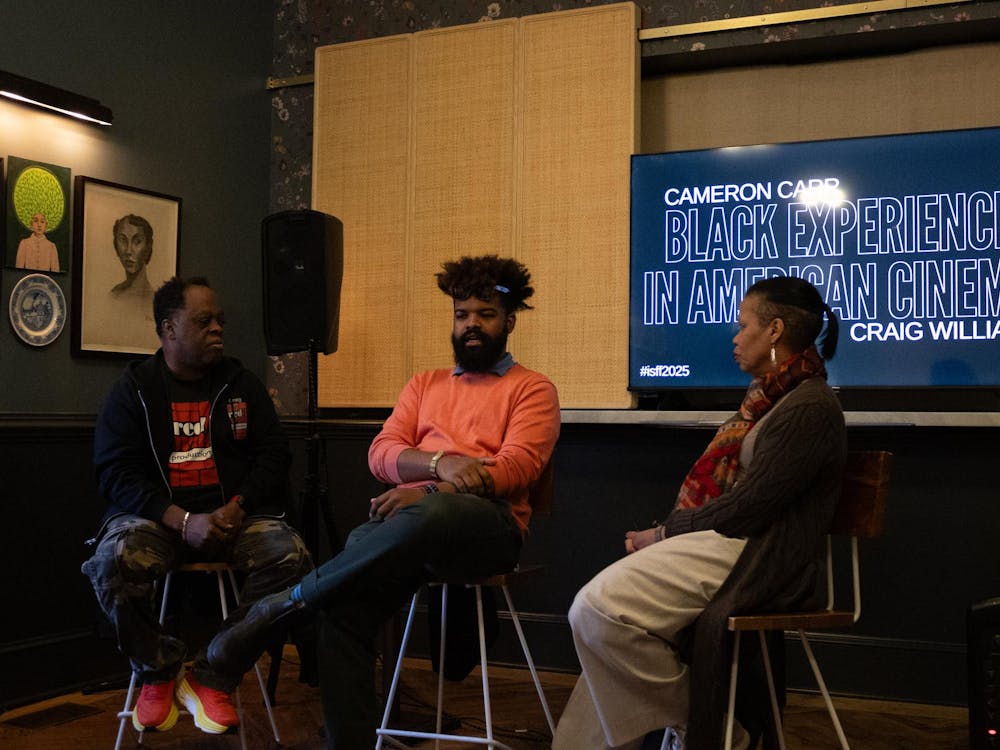I am not proud to be an American, as I imagine most of us aren’t in the current moment. But this isn’t a new feeling to me, and it certainly isn’t to Black Americans. If this is a new feeling to you, you weren’t listening before. As a white Latino, I write this article fully understanding that this has never been and will never be my story — and I acknowledge the immense privileges that direct my every move and opportunity. I write today to turn solidarity into outward action through music, in an attempt to do good through an imperfect reflection — with the recognition that these privileges have done centuries of evil.
White power intertwined with anti-blackness is one of the oldest human power structures. Early on in one of the first great human civilizations, Egypt, when occupied by white Arab, European and Asian settlers, Black people were labeled as inferior and forced to migrate south — away from the economically and agriculturally prosperous Red Sea. As the saying goes, Rome wasn’t built in a day — but the first great human civilization was Black and was built two thousand years earlier.
And then you get to the United States. America — a country founded on the genocide of Native Americans, with white settlers branding conquest as immigration. A country that drowns our immigrants in administrative nonsense, expensive court fees and the ever-present, looming threat of militant anti-immigrant force funded and supported by our government. A country whose early economy was based solely on the enslavement of Black people. A country where enslaved labor still survives in our prisons — within a deeply racist justice system that, just a generation ago, practiced Jim Crow law. A country founded on democracy — but a democracy that has always represented the select few. A country founded on rebellion and protest, a country which now stands only to support rebellion and protest that wears a white face. History repeats itself, because power is always power.
The headlines tell us that history has yet again repeated itself, and power holds its head high. George Floyd, father of five. We live in deeply troubling times, but again, this is not new. We now imbue ourselves in a collective, concentrated reflection — and demand structural reform and redefinition. Voices across the globe, including all 50 states, are rising to the occasion.
I could have selected a slew of incredible songs that reflect one of the many faces in the deeply complex Black experience in our nation — Janelle Monáe’s “Americans,” Nina Simone’s “I Wish I Knew How It Would Feel To Be Free” or Stevie Wonder’s “Living For the City,” to name a few. But to analyze and discuss these songs would simply reflect a gruelling reality the oppressed have known for centuries — this country does not protect, value or serve Black individuals and communities. Re-acknowledging the core issues is by no means a fruitless endeavor, but I do not feel it is my place to explain what is already understood — I merely wish to use music as an open expanse of reflection. Instead, I am drawn to “Cinquante Six” by Ali Farka Touré, a song that derives its gravity from its inability to speak.
Ali Farka Touré is one of the greatest guitarists of all time, lauded for his grasp on hypnotic rhythms and influence on American blues. The Mali-based multi-instrumentalist is an international superstar and household African name. On his 1992 album “The Source,” Touré records “Cinquante Six,” a brisk, 5-minute instrumental break with a grand urgency unlike anything I’ve ever heard before.
“Cinquante Six” builds off of a continuous backing guitar loop, constructing a stage upon which Touré can speak his unspoken truth. Touré’s guitar picking — at times jumpy and frantic, at times mellow and reserved — tells an unspoken story. A story of season’s change, of struggle and resistance, of occasional peace within the melancholy. Touré’s guitar tells the story of a drowning civilization, barely keeping afloat, fighting an endless fight, but caught in the undertow of a sonic backdrop that will loop forever — until the band stops playing. A story, and condition, that feels all too familiar — and too often unspoken for.
I first listened to “The Source” after buying it from a bargain box at a random record shop. “Cinquante Six” always stuck out to me as deeply moving, but I never understood why — until now. It provides space for inward contemplation, while telling its own beleaguered story. It provides listeners with a moment of internal rumination, whose meaning is up to individual interpretation. These moments of quiet rumination feel more important than ever — as they inform the unified action necessary to bring justice.
When seasons change, we will not forget George Floyd, as we have not forgotten those before him. We will fight until the day that the land of the free becomes the land of the liberated, the day that justice is the sunrise and the sunset, the day that Black people are safe, supported and provided long-overdue justice. In his 1963 book “The Fire Next Time,” James Baldwin says, “It is not permissible that the authors of devastation should also be innocent. It is the innocence which constitutes the crime.” Let us continue to persecute the authors of Black devastation, to institute the authors of Black salvation — and allow “Cinquante Six” to soundtrack the deliverance. And some day, when seasons change, the band will stop playing.







